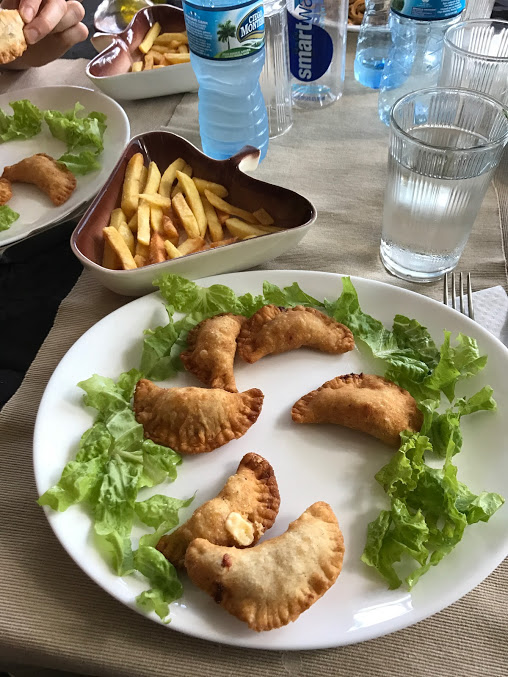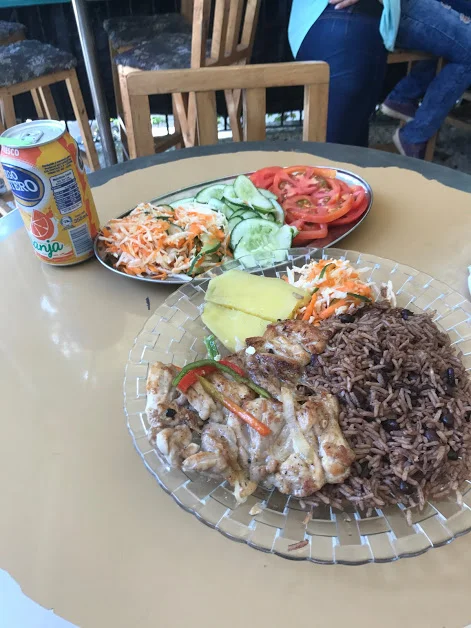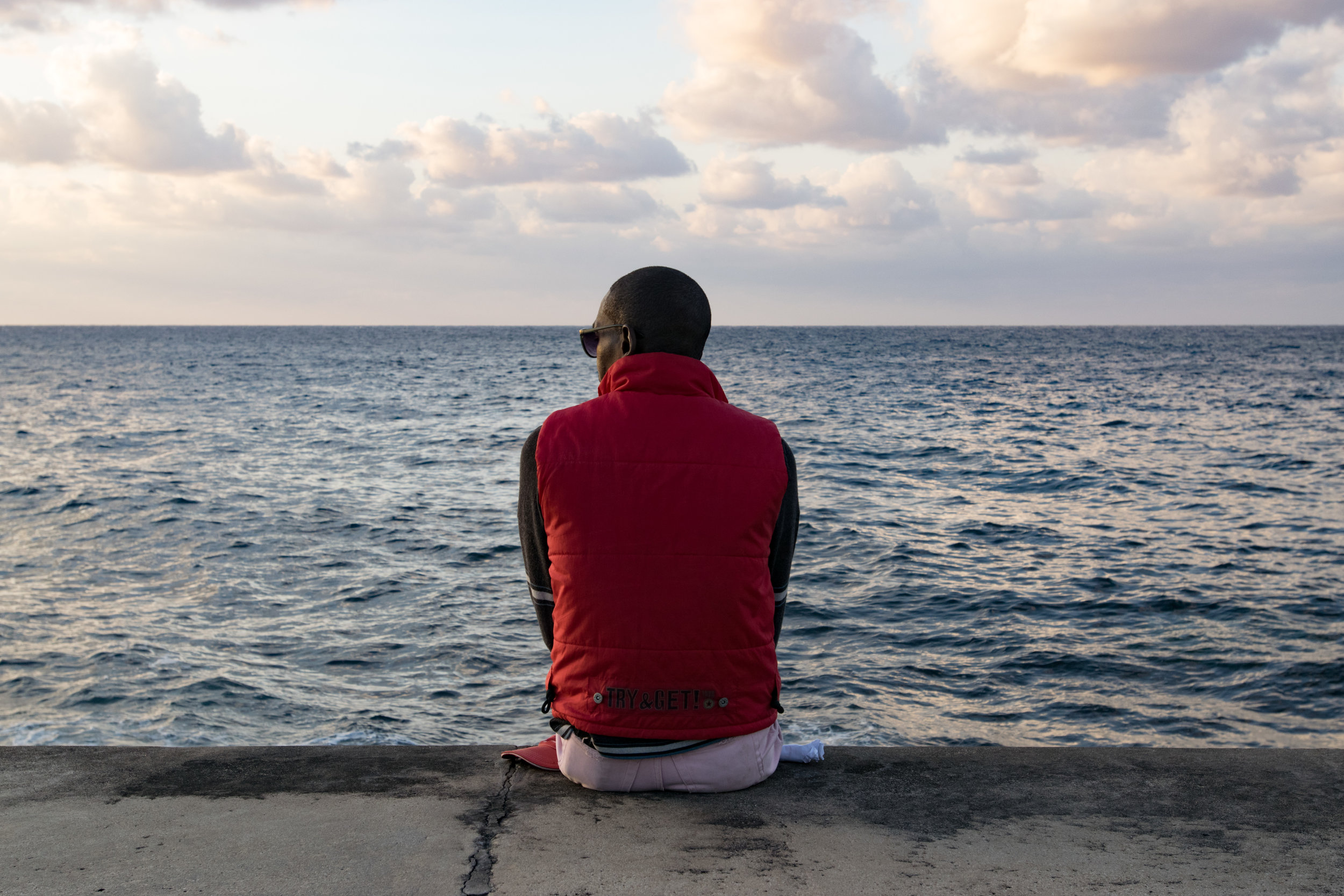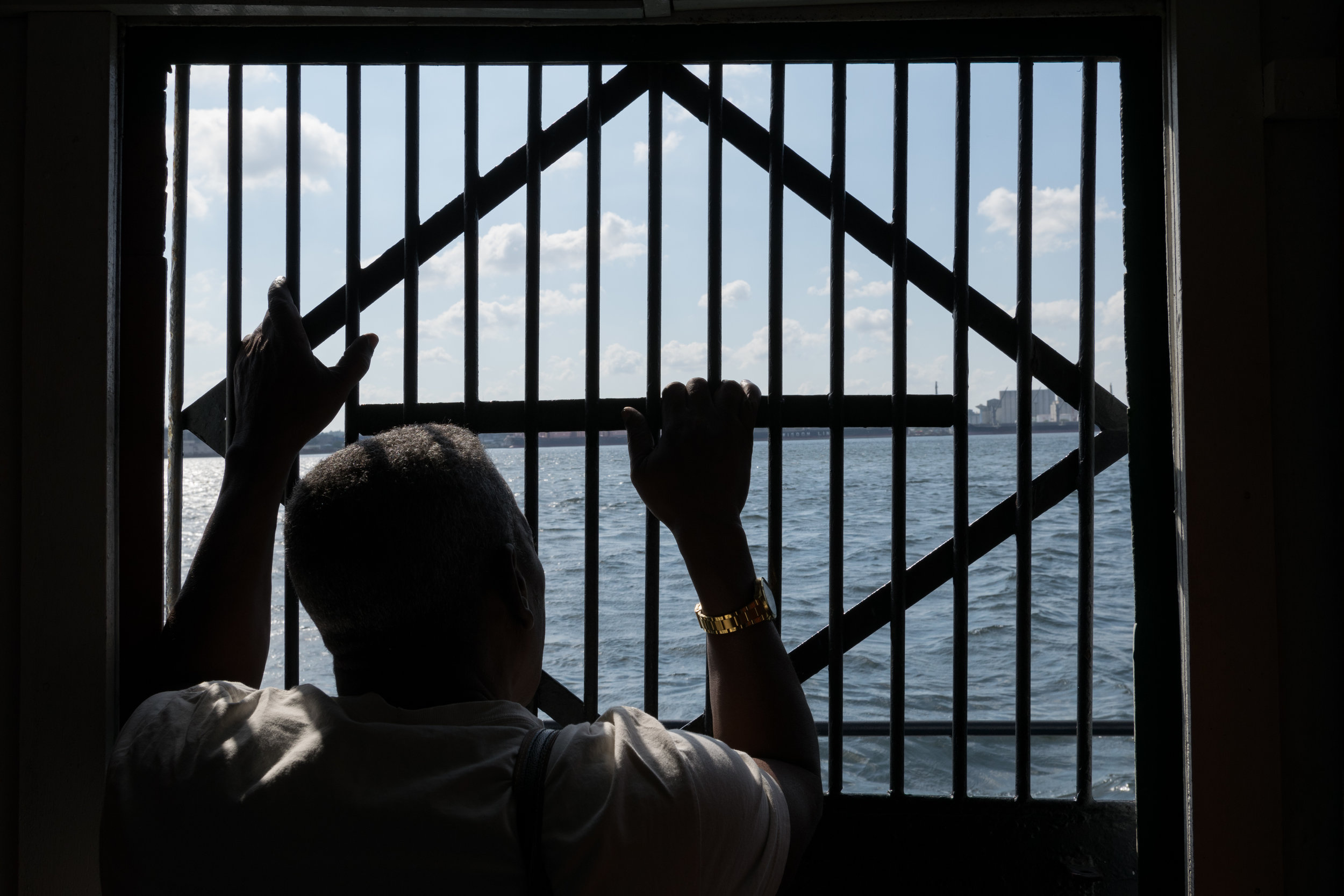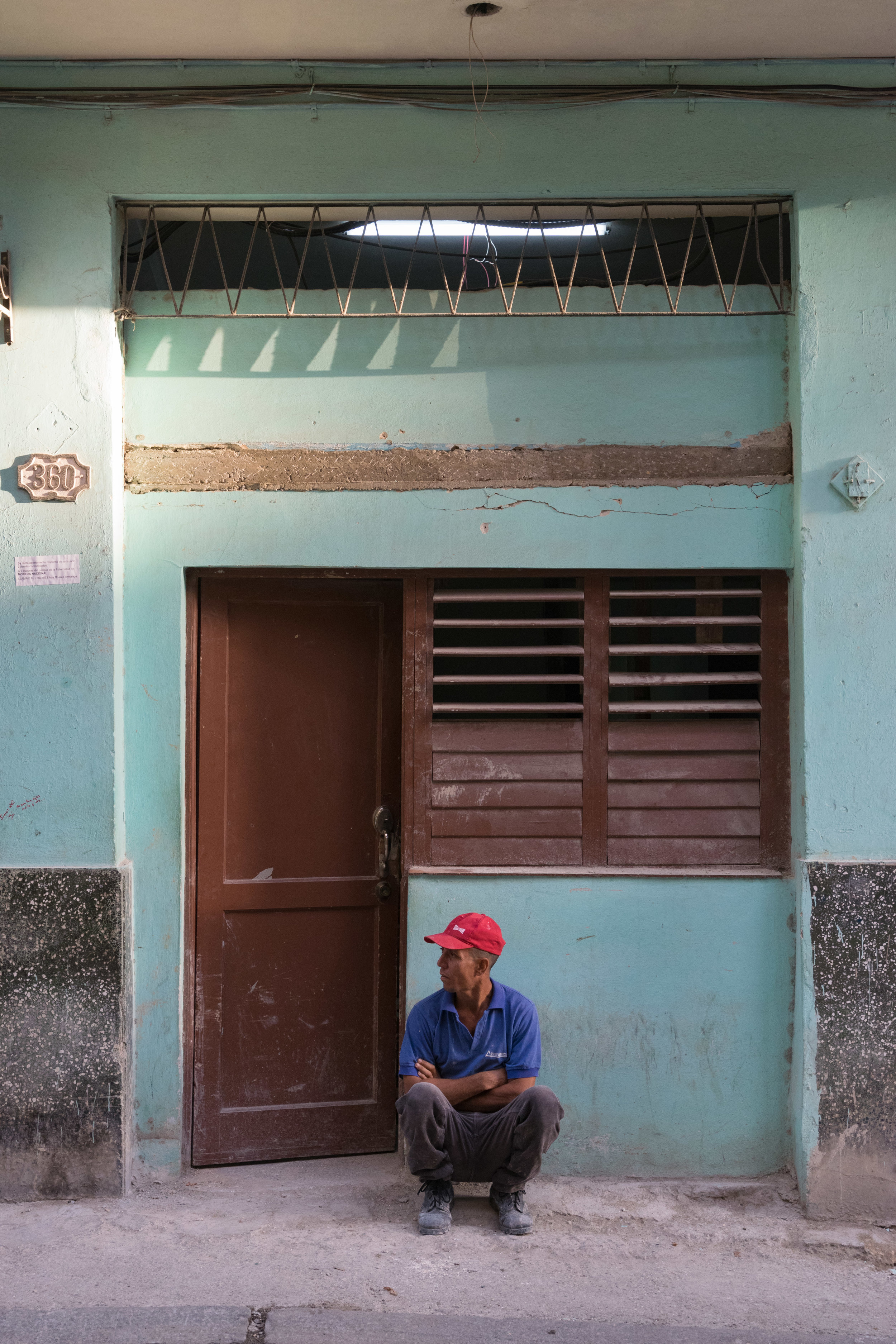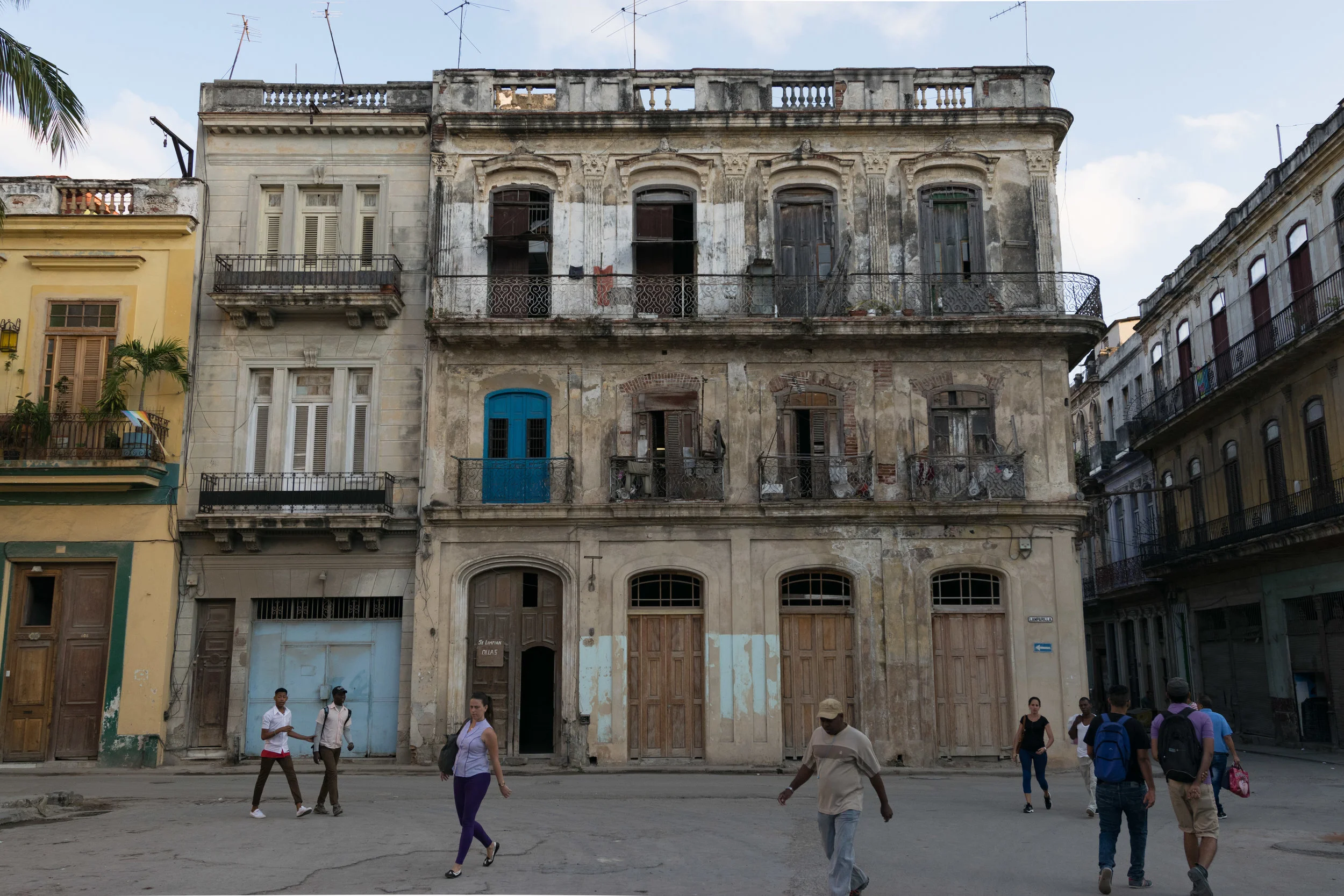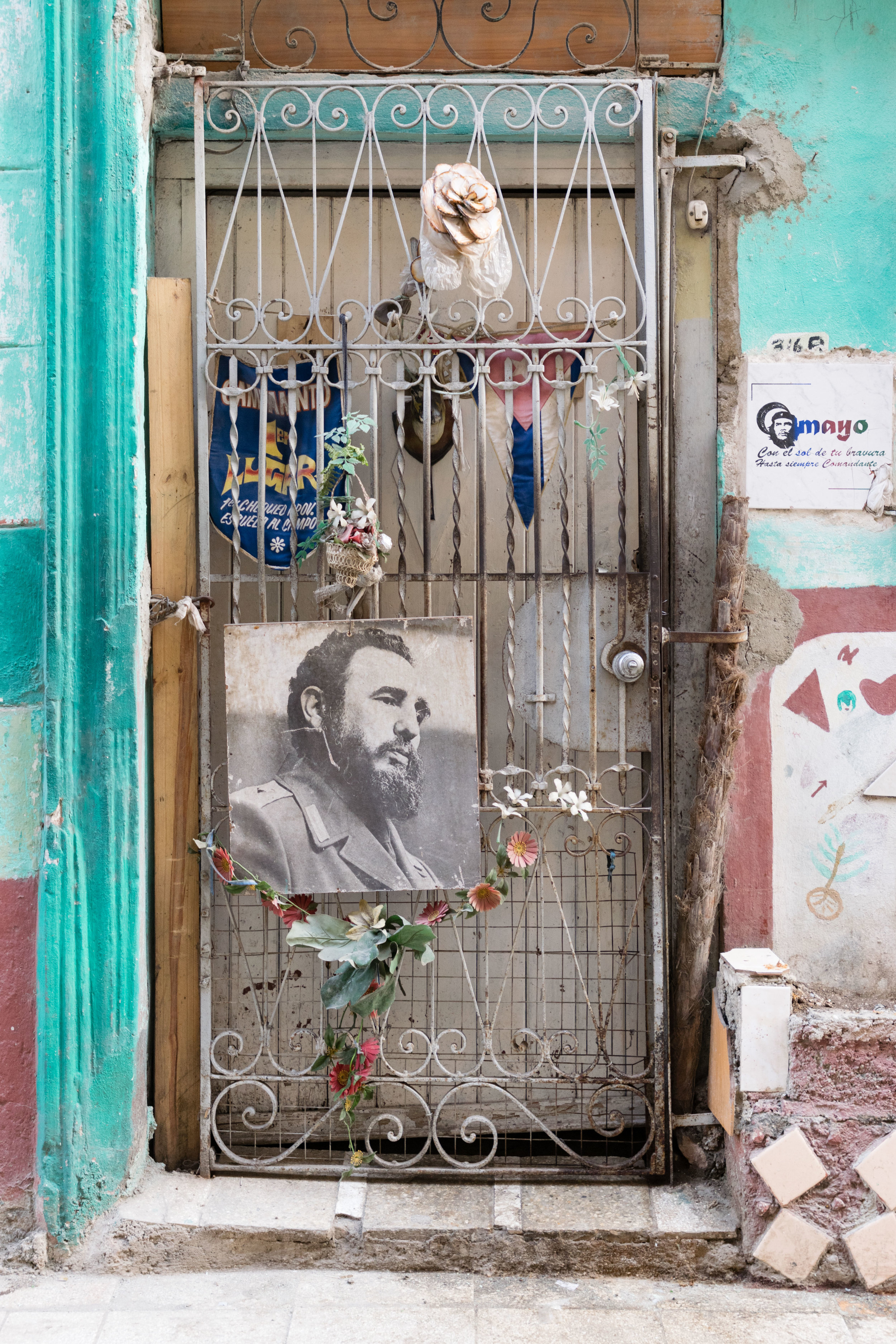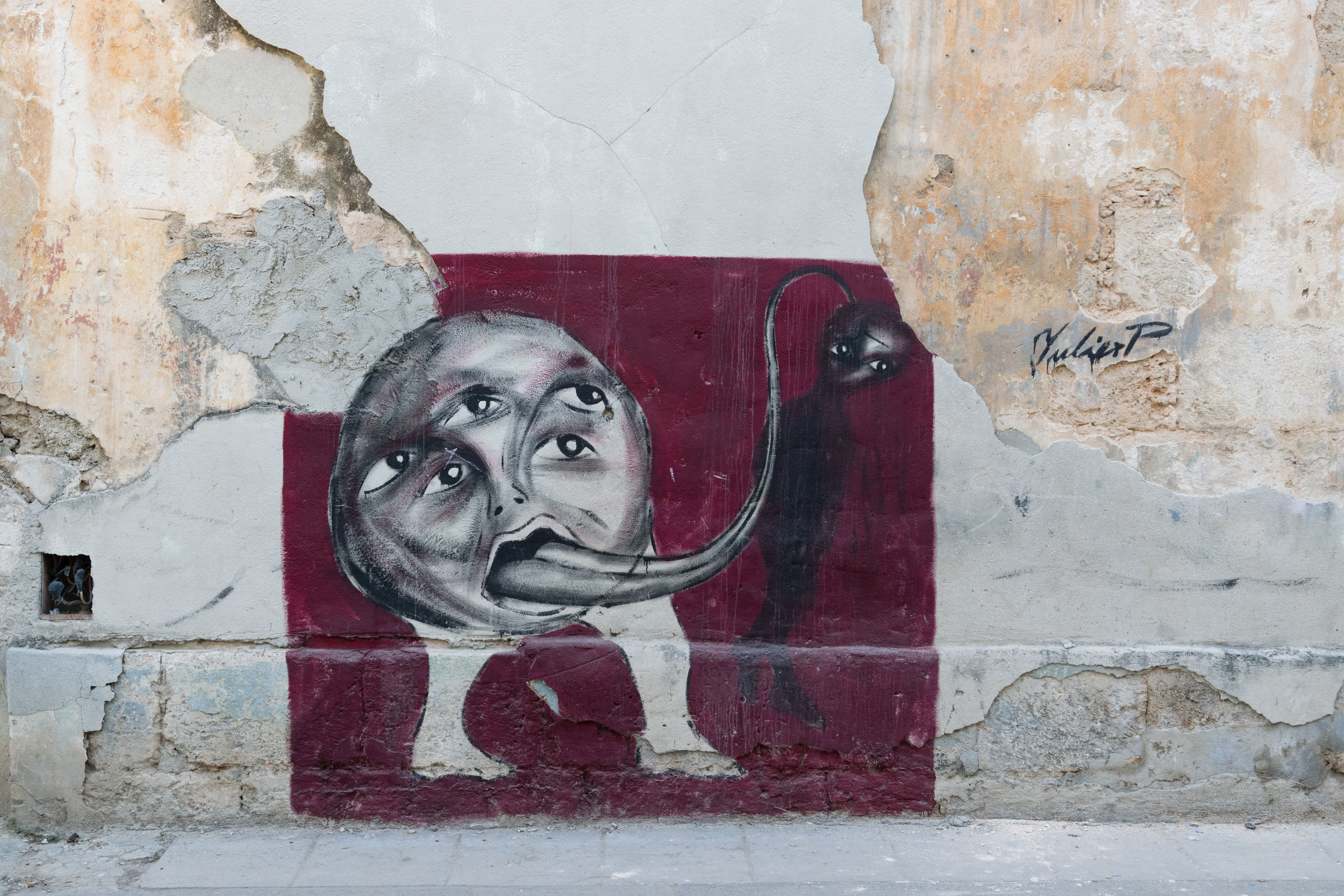Cuban flag at Museo de la Revolucion. (Nikon D3300, Nikon, NIKKOR 17-35mm f/2.8D @ 25mm, f/9, 1/320 sec, ISO 200)
Just about a month ago I had the opportunity to visit Cuba for eight days with three friends and fellow photographers from Brooklyn Central. All of the photography classes I've taken up to this point have been through Brooklyn Central. Apart from the formal training, I think the most rewarding part of being a member of the collective has been the opportunities afforded to me and the relationships I've been able to forge through it. It's hard envisioning this trip coming together like it did without BKC.
The trip was part vacation and part photo retreat... No Internet or phone connection for 8 days... waking up at 7 AM each morning and venturing out into the streets of old Havana to capture the sights and sounds around us... The people, the culture, the way of life. Needless to say, it was an amazing experience and if Cuba has been on your mind ... DO IT! With the normalization of relations with the United States, the island is on the precipice of change and it's hard to see the island holding on to its allure once American industry and influence flood the island.
** The first section of this blog post is a brief guide to Cuba, if you'd like to skip straight to the photos keep scrolling down until you reach the Lonely Planet quote. All of the images have the Lightbox feature, meaning you can click on them and navigate from one photo to the next at full size, just hover your mouse towards the edges of the image and click if you're on a computer or tap and swipe left to right on a mobile device. **
Still there? Cool ... So I've been getting a few of the same questions from people about the planning and logistics for the trip so let's get started with that ...
Best Time To Travel
I was in Cuba for 8 days (Friday, March 17 - Saturday, March 25). The peak tourist season runs roughly from mid-December to mid-March and all of July and August. Prices are highest and crowds are the thickest in high summer when the holiday season for Cubans gets underway. The dry season runs roughly from November to April while the wet season runs between May and October so pack accordingly and check the weather before you go.
Cost of Flight:
$275 Round Trip & Direct from JFK -> HAV. Not all of the search engines provide search results for flights to Cuba so you might have to try a few before you find one that does, Google Flights is always my first choice. At the time of this post, 8 US carriers are providing direct service to Cuba: American, Southwest, Spirit, Delta, United, Alaska, Jetblue, and Frontier. However Denver-based Frontier Airlines said it would terminate its Miami-Havana flight on June 4, 2017. A few people in the aviation industry think more airlines might be following suit in either terminating routes or providing reduced service, read more about it here.
Visa Requirements
Despite Obama beginning the process of normalizing relations with the island in December of 2014, tourist travel to Cuba still remains prohibited for US Citizens. Travel to Cuba is restricted to one of 12 categories of authorized travel (for more information and to see a list of the 12 categories please visit the US State Department website here). Most airlines will charge you $50 USD for a Cuban tourist card (visa) and you will select your reason for travel on what's called an OFAC form at the gate, so there's no need to apply for either one online or in advance despite what you might read online. In my experience, the whole process is more of a formality than a strictly enforced policy, at no point was I asked for my itinerary or even a point of contact in Cuba. But as a disclaimer this was just my experience, don't @ me at the gate upset because the agent is giving you a hard time ... do your research and make sure you reach out to your airline for the most up to date information. Things can change at any time with the Cheeto at the helm.
Essentials
The biggest thing to know before a trip to Cuba is that you are not going to be as connected as you're used to when traveling to other destinations. Do as much planning as you can before the trip and fill out your itinerary each day as you won't be able to just Google something on the fly as you're accustomed to. Print out maps, download everything you need directly onto your phone so you can access it without Internet access, and bring a guide book for quick reference.
1 Hour Prepaid ETECSA Wifi Card
- Internet - There is no free Wifi in Cuba, Internet access anywhere on the island is restricted and controlled by the government. Hotels tend to offer the fastest and strongest connections but their rates can be expensive, typically between $6 CUC and $10 CUC an hour. If you're not staying at a hotel you will need to purchase a prepaid Wifi card from a ETECSA telecommunications center which will give you access to any of Cuba's public Wifi hotspots. The cards come in 1 hour and 5 hour denominations and cost $2 CUC / hour (so that’s $2 for 1-hour card and $10 for a 5-hour card). The ETECSA centers are hard to miss as you'll see a long line of locals and tourists lining up to wait, I've heard the lines can easily be over an hour long so be prepared to wait. If you don't feel like waiting you can buy a Wifi card from any of the jineteros (street hustlers) who will undoubtedly approach you when you enter a public hotspot area. They'll usually tax you anywhere from $1-$2 CUC above the face value of the card for their trouble, but don't get ripped off ... make sure the silver scratch off area is still intact on the back of the card as that is what reveals the code you'll need to access the Internet. The folks over at Drink Tea Travel have the most concise guide to Wifi & Internet access in Cuba I've come across so far if you'd like to learn more.
- Phone - Most American cell phone carriers charge exorbitant prices per minute or per megabyte for connection to Cuba's network so you're better off keeping your phone in airplane mode to avoid bill shock when you return home. If you happen to be staying in Cuba for an extended period of time it might be worth looking into getting your phone unlocked and purchasing a SIM card when on the island through the country's sole carrier Cubacel. Just keep in mind that there are significant parts of the country, such as much of Pinar del Río province, where you are unlikely to get any mobile phone network coverage at all, rendering your phone useless for calls and texts.
- Electricity - Generally 110V 60Hz which is the same current as the United States, no converter or adapter required. But always ask ... in some hotels it is 220V and in a significant number of casas particulares (more on those later) both are available.
- Safety - At no point did I feel unsafe, even walking late at night on side streets. But as always ... no matter where you are ... be street smart and be aware of your surroundings. The only thing you'll probably come up against are jineteros (street hustlers) trying to sell you their wares or knockoff Cuban cigars. One thing that I did find frustrating is assuming that locals were generally interested in assisting or helping you only to find out later that they were only interested in your money, after a few days I wised up to this and to avoid the charade was up front with anyone that approached me that I had no money. I didn't let these few experiences change how I felt about the people, 99.9% of Cubans are very honest and generous people who are happy to meet a foreigner with no interest in their money at all.
- Language - The majority of Cubans only speak Spanish but in the major cities you will find that some of the locals speak enough English to get by and carry a conversation. If you're not fluent in Spanish make sure that you download Google Translate and the Spanish language package before your trip. With one of the world's highest literacy rates (99.8%), you'll find that Cubans will have no trouble at all understanding your message typed out through the app.
- Navigation - You can go old school and purchase a map of Havana (or all of Cuba if you plan on going around) but your best bet is to download Maps.me which allows you to download offline maps and have full turn by turn navigation with no Internet access, I had my phone in airplane mode for the duration of trip but was still able to get detailed turn by turn directions for any location I put in the app.
- Trip Planning - Google has a new travel app called Google Trips that allows you to put together an itinerary that you're then able to download for offline access. While I liked the ability to be able to see nearby attractions and quick details the app still seems like it's in beta, I wasn't even able to add my Airbnb reservations into the app. I've been using TripIt for years and while the mobile app and website aren't as refined as Google it works much better, all your reservations in one place and the ability to follow along on your phone makes your trip run that much smoother ... check it out.
Currency
Cuba operates under a dual currency monetary system that seems a bit confusing at first but is easy to understand once you figure it out -
Easiest way to remember the difference between the two currencies ... CUCs have pictures of statues and monuments while CUPs have pictures of actual people.
- Cuban Convertible Peso (CUC $): The major legal currency for Cuba is the CUC. It’s what you exchange your foreign currency for and as a tourist will be how you make almost all of purchases in Cuba. For international exchange purposes 1.00 Cuban Convertible Peso = $1.00 USD but when exchanging USD there is a 10% penalty and 3% currency exchange fee so you will only receive 87 centavos CUC for $1 USD. Best way around this is to exchange your USD($) to Euros(€) before your trip and exchange your Euros to CUC when you arrive since Euros aren't hit with the 10% penalty but only the 3% exchange fee.
- Cuban Peso (CUP MN): The second legal currency in Cuba is the CUP, which is used almost exclusively by locals but can be used by tourists as well. The exchange rate for is roughly 25 CUP for 1 CUC so what helped me was basically thinking of 1 CUP as a quarter or 25¢. Most of the local shops and small restaurants outside of the more touristy areas will give you change in CUP even if you pay in CUC.
It's worth noting and I can't stress it enough so I'll put in bold and all caps ... AMERICAN DEBIT AND CREDIT CARDS ARE NOT ACCEPTED ANYWHERE IN CUBA INCLUDING ATMs! When I say anywhere ... I mean absolutely anywhere, budget accordingly and bring at least 125-150% more money than you think you'll actually spend just to be on the safe side. You can always convert your extra CUC & CUPs to USD or EUR at the airport before you leave but you're fucked if you run out of cash. Not fucked like in a "Damn my phone died and I don't remember if I packed a charger" kinda way but fucked in a "This country is not connected to the American economic system AT ALL" kinda way. I mean there's MoneyGram but good luck figuring that out on your cell with no phone or internet connection or better yet on the landline that's barred from placing calls to the US. You get the point.
Legal casas must post this sign at their door, it's an easy way to spot one if you're in a pinch and need somewhere to stay.
Accommodations
Airbnb is alive and well in Cuba with a pretty big selection of beautiful and affordable homes, apartments, and rooms to rent during your visit. If you'd like to minimize the amount of cash you have to bring or are one of those people that need to have everything figured out before you arrive at your destination Airbnb is the way to go. If you haven't used Airbnb before I would highly recommend it, so much so I'll put my money where my mouth is and give you $40 off your first reservation by using my invitation code: www.airbnb.com/c/obedo (#shamelessplug). As much as I love Airbnb, I would be remiss not to mention Cuba's version of the popular service known as casa particulares (Spanish for "private house"), a thriving network of thousands of private homes letting out rooms to guests for anywhere between CUC $20 and CUC $50 per night. Most of the casas include a delicious breakfast each morning and staying at one is probably the best way to gain insight into the country and its people as you will be spending time with your host family in their home. Visit Havana Casa Particular, My Casa Particular, or Cuba Junky for a selection of casa particulares to choose from during your stay.
Food
Cuban food is hit or miss, fluctuations in the food supply caused by Cuba’s economic situation mean that restaurants and hotels can sometimes run short on ingredients and as a consequence, you’ll find the same dishes cropping up time and again (I went on a Cuban sandwich strike halfway through my trip) ... it’s rare to find a restaurant that can actually serve everything on the menu; I remember settling for my fourth option at one restaurant. So if you're a foodie, bring your expectations down to earth and be ready to be open to getting by on what you can get. Breakfast was included at both of the AirBnbs and the casa particular I stayed at towards the end of my trip, so you'll probably only have to figure out where to eat lunch and dinner. The best meals I had during my trip were off the beaten path at cafeterias, which is where most Cubans catch a quick bite to eat and were much cheaper than restaurants in the more touristy areas like Habana Vieja. If you'd like to delve more into Cuban cuisine the folks at Rough Guides have a great post.
Transportation
Getting around was probably my biggest expense while in Cuba after accommodations, it can add up pretty quickly so make sure that you either travel with a group to help offset the price or that you book a room in a central location that will allow you to explore and get around by foot. I got around by taxi for the most part which you'll find running throughout Havana, ask and agree on the price before you enter the car to avoid being scammed. I did not use public transportation while I was in Cuba but from what I've heard it's generally slow, complicated and subject to frequent cancellations and delays ... NJ Transit ... is that you?
“Timeworn but magnificent, dilapidated but dignified, fun yet maddeningly frustrating. Cuba is a country of indefinable magic on the cusp of change”
I captured portraits of some of the people I came across during my 8 days on the island in a series called "Retratos Cubanos" (Cuban Portraits), check it out here. I hope you've enjoyed going through my blog and getting a feel of Cuba and it's people through my images. If you know anyone interested in going to Cuba please share this post with them but ultimately likes and shares don't pay the bills! The only way I'm able to support my artistry is through booking shoots and engagements so if you or anyone you know in the NYC area is looking for a photographer share my work and put in a word for me. You can always reach out to me via the contact page on my website or through social media. ¡Gracias!
